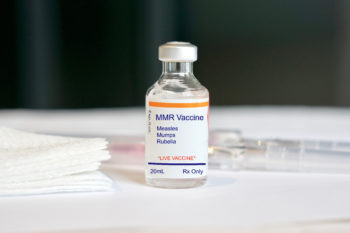A staff member at Porter Elementary in the San Diego Unified School District has an infection caused by the meningococcal bacteria, according to officials with the San Diego County Health and Human Services Agency (HHSA).
The last time the staff member was at school was March 15. HHSA has already notified people who have been in close contact with the individual that they should receive antibiotics to prevent any possible infection. None of those close contacts were from the school. The individual with the infection is being treated at a local hospital.
“The risk to individuals who are not in direct contact with the infected individual is minimal,” said Wilma Wooten, M.D., M.P.H., county public health officer. “Meningococcal disease is spread through close contact with the person infected.”
This is the third case of meningococcal disease reported in 2013. Last year, there were eight cases. Since 2005, the number of cases each year in San Diego County has ranged between four and 14.
HHSA continues to work closely with federal, state, and Baja California health officials to determine if any local cases may be linked to an unexpected increase of meningococcal disease cases occurring in Tijuana this year. Eighteen cases of the bacterial disease have been confirmed in Tijuana since January 4, including six deaths. There are no changes in routine health recommendations for those who are travelling to Tijuana.
“Parents should be alert for any symptoms in their children that could be caused by the meningococcal bacteria,” said Wooten.
Symptoms may include fever, intense headache, lethargy, stiff neck, and a rash that does not blanch under pressure. Anyone with potential exposure who develops any of these symptoms should immediately contact a healthcare provider or emergency room for evaluation of possible meningococcal disease.
The bacteria can be spread through close contact, such as sharing drinking glasses, eating utensils, cigarettes, or water bottles. They can also be spread by kissing, smoking and living in close quarters. The time between exposure to the disease and the onset of symptoms can be between two to 10 days. Individuals who had close contact with someone who is infected should receive antibiotics to prevent any possible infection. Preventive antibiotics are not recommended for people who were not in close contact with an infected person, but they should be aware of possible symptoms and make sure they have received the recommended vaccination against the disease.
A vaccine is available to prevent certain strains of meningococcal disease and is routinely recommended for children and adolescents 11 to 18 years of age. Families are encouraged to make sure their pre-teen and adolescent children are up-to-date on all recommended vaccines, including meningococcal vaccine. To find out more information about this vaccine-preventable disease, please visit www.sdiz.org.






